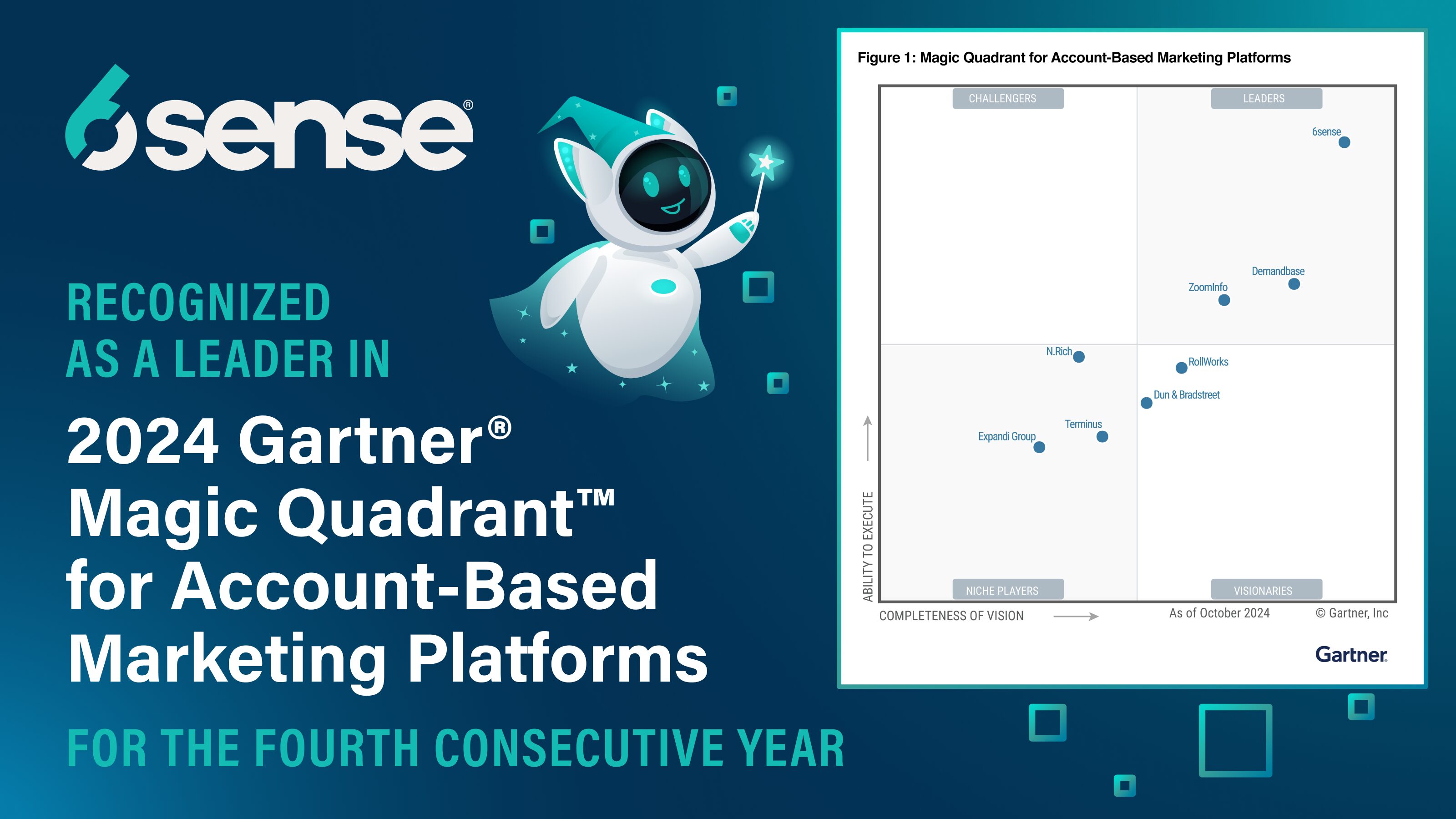Vertiv has provided IT infrastructure support for some of the world’s leading businesses since 1965, and with over 750,000 customer sites worldwide, Vertiv serves more than 70% of Fortune 500 companies.
Paul Russell, the London-based Global Customer Marketing Director at Vertiv, has been with the organization for over eight years. Noticing a sea change in the way B2B buyers operate, he decided to explore how 6sense could help stress test a new account-based marketing (ABM) approach in an untapped marketplace.
Paul explains how he was able to leverage 6sense intent data to revolutionize the way Vertiv approached their go-to-market strategy in a new territory, while delivering impressive results. For any business facing the challenges of international expansion, there’s much to learn.
The Challenge: Adapting to Modern Buyer Behaviors
The modern B2B buying journey has drastically changed. According to Frost and Sullivan, 81% of B2B technical content users prefer to self-serve, and McKinsey reports that buyers spend only 6% of their total buying time with sales reps per vendor. 6sense’s own research shows that 70% of buyers prefer no interaction with sales reps at all.
Despite their large footprint with Fortune 500 businesses, Vertiv recognized these shifts and knew that their approach to sales needed to evolve.
“Understanding and adapting to the modern buyer’s journey was crucial,” Russell told us. “We needed a strategy that aligned with their preferences for less direct interaction while still effectively reaching our target market.”
The Solution: Project Opera
To address these changes, Russell launched Project Opera, a six-month pilot to test a new GTM strategy in Australia and New Zealand, far from executive oversight. They chose this underpenetrated mid-market region due to its strong local sales leadership and an Australian culture of honest feedback.
While years in the business gave Vertiv a good sense of their Ideal Customer Profile (ICP), they had never paired this with intent data to understand what portion of their Total Addressable Market (TAM) was looking to shop for solutions.
The goal of Project Opera was twofold: gain footing in a new region and understand how ABM principles of putting the right message in front of stakeholders who were ready to act might move the needle.
Engagement Plan
Vertiv used the 6sense platform integrated with the Eloqua Marketing Automation Platform (MAP) to understand market behavior. They focused on important keywords and topics to identify potential customers. They defined an ICP for mid-market companies and reviewed their contact data to ensure they were targeting the right accounts.
Their GTM strategy started with understanding their Total Addressable Market (TAM), which included mid-market enterprises with over $10M in revenue. They narrowed down from 120,000 companies with over 100 employees to 35,000 companies with over 500 employees, focusing on key industries. Among these, they identified 2,181 accounts that were actively looking for solutions—about 6% of their TAM.
Execution and Results
The strategic use of 6sense led to remarkable results for Vertiv in a short span. The pilot not only achieved a $1 million pipeline within the first four weeks but also saw an 80% increase in marketing-found pipeline from the previous quarter. Web traffic from target accounts surged by 428%, and the first order was secured within just seven weeks of BDR engagement.
Key Metrics:
- $1M pipeline in 4 weeks
- 80% increase in marketing-found pipeline
- First order within 7 weeks
- 428% increase in target account web visitors
- 320% increase in unique visitors per target account
Vertiv surrounded high-intent accounts with customized ads on LinkedIn, Google Ads, 6sense, and YouTube. This programmatic advertising significantly increased unique visitors to Vertiv.com and reduced CPM costs by 90%. Additionally, BDR outreach was crucial, with a 12% increase in call connect rates compared to non-ABM outreach and BDRs finding, on average, four qualified opportunities per week.
“The pilot not only validated our ABM strategy but also showcased the power of precise targeting and alignment between sales and marketing. 6sense was instrumental in our success, providing the insights needed to capture and engage our most valuable prospects.”
Paul Russell
Global Customer Marketing Director, Vertiv
Keys to Piloting Success
The success of Project Opera boiled down to:
- Strong leadership alignment and a dedicated ABM focus team.
- Starting small, executing strongly, and iterating quickly.
- Continuous testing and learning, even from mistakes.
- Demonstrating financial impact to secure buy-in.
Conclusion: A Blueprint for Future Success
Project Opera has set a precedent for Vertiv’s future marketing endeavors. With the success of the pilot, Vertiv plans to expand their use of predictive analytics to better identify accounts likely to buy, estimate potential spend, and predict deal closure timelines.
The pilot not only demonstrated the effectiveness of a well-executed ABM strategy but also highlighted the critical role of innovative tools like 6sense in understanding and capturing market opportunities in today’s digital-first buying environment.
“Project Opera wasn’t just a pilot; it was a revolution in our market approach, proving that with the right tools and strategy, even untapped markets can yield tremendous growth,” Paul Russell concludes.


